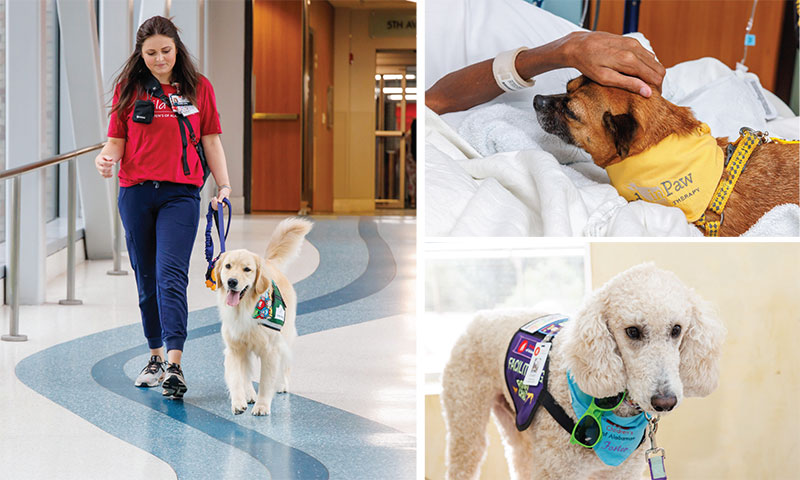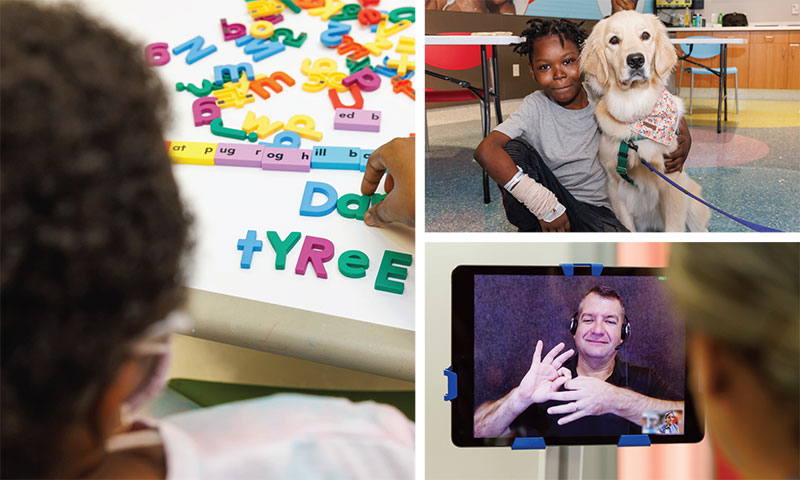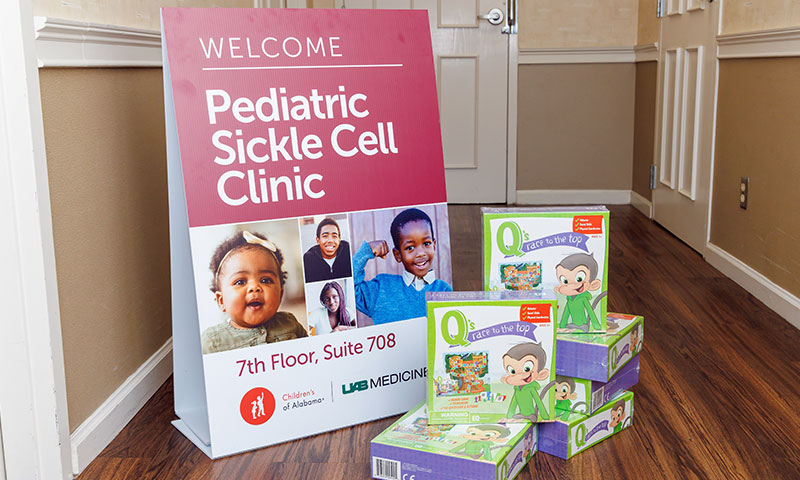


Children’s of Alabama introduced PetsRX, a new animal-assisted therapy dog program, to help patients navigate their health journey. The program includes Wanda, the hospital’s first medical dog. Combined with the expertise of her handlers and child life specialists, the 2-year-old golden retriever assists patients through goal-directed interventions, helping patients cope, heal and achieve treatment goals while at the hospital.
In addition to Wanda, PetsRX also consists of three other animal-assisted programs, including Hand-in-Paw, a long-time hospital partner. Children’s South offers the Pups Unleashing Patient Smiles (P.U.P.S) program, which features poodles Shelby and Foster, who are trained to work in therapeutic settings. The Children’s Hospital Intervention and Prevention Services (CHIPS) Center works with service-trained facility dogs through the Hero Program with the Alabama Office of Prosecution Services to help in the healing journey for suspected victims of child abuse.

In an effort to enhance, maximize and streamline the holistic family-centered care and support provided to patients and their families, Children’s brought together several existing departments from separate divisions to create the Division of Integrative Care. This new division is comprised of child life and education, language services, patient relations, social services, spiritual care, and volunteer and guest services. Beth Rocker, MSW, LICSW-S, who previously served as director of social services, is the division director of integrative care.
This division exists to promote excellent family-centered care at Children’s by providing comprehensive services, support and resources to meet the holistic needs of our patients and families, including physical, emotional, mental, spiritual, relational, social, tangible and environmental needs. The division ensures these needs are met through direct patient and family care services and through referrals to community partners.

The Division of Hematology, Oncology and Blood and Marrow Transplantation is working with information technology, the Children’s facilities team, and staff from the foundation to update the Sickle Cell Clinic in Montgomery, which is held twice monthly in a shared space in the Morrow Medical Tower at Baptist South. The goal is to improve care and the overall patient experience in that clinic, which provides care to one of the largest cohorts of patients with sickle cell disease in the state. Additionally, work is underway to expand and strengthen the relationship with the Sickle Cell Foundation of Greater Montgomery and to review and produce location-specific patient education materials.
“This clinic signifies our unwavering commitment to lightening the burden on our families,” said Jeffrey Lebensburger, D.O., MSPH, section head of hematology at Children’s. “With the invaluable support from the community, we have redesigned our clinic, improved patient education materials and enhanced clinical services.”
The clinic in Montgomery is one part of our overall sickle cell disease program at Children’s and the University of Alabama at Birmingham (UAB), which cares for nearly 1,000 patients.

Children’s 2023 priorities:
In a significant move to advance quality improvement efforts within the UAB Department of Pediatrics, the Children’s Pediatric Office of Improvement Science (POISE) has undertaken various initiatives aimed at enhancing the overall quality of health care services. One notable achievement is the establishment of subsections by POISE, strategically designed to channel the efforts of quality officers toward improving the quality of care provided. These subsections—education, outreach, project support and recognition—address key areas crucial to advancing the state of quality improvement across the department.
In 2023, we continued to make strides along our journey to eliminate safety disparities. We now have a formal health disparities improvement team that will review, investigate and offer strategies for improvement on potential disparities identified by the hospital acquired condition (HAC) teams and/or others related to safety and outcomes.
Our pressure injuries team proudly reported a 69% reduction in serious harm events across the organization last year, along with a 10% reduction in respiratory device-related pressure injuries. Over the course of the year, we made a number of changes and updates to prevent pressure injuries. This included updating our pressure injury playbook, Solutions for Patient Safety (SPS) bundle, pressure injuries interaction process and our pressure injury policy. We added a new oxygen therapy policy, provided re-education for staff and specialized mattresses/beds for ECMO patients among other improvements.
Our overall number of unplanned extubations decreased last year, specifically in the pediatric intensive care unit (PICU) and the cardiovascular intensive care unit (CVICU). All three of our ICUs achieved success by meeting their 2023 intervention goals, which included education and other strategies.
In our effort to prioritize workplace violence and institutional safety, we implemented several initiatives including worksite analyses at various locations around our campuses. These ensure we are taking the right steps to identify opportunities for improvement.